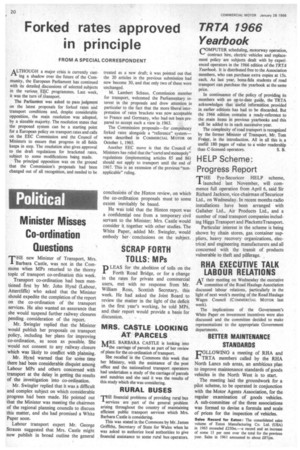FROM A SPECIAL CORRESPONDENT ALTHOUGH a major crisis is currently
Page 22

If you've noticed an error in this article please click here to report it so we can fix it.
cast' ing a shadow over the future of the Community, the European Parliament has continued with its detailed discussions of selected subjects in the various EEC programmes. Last week, it was the turn of transport.
The Parliament was asked to pass judgment on the latest proposals for forked rates and transport conditions and, despite considerable opposition, the main resolution was adopted, by a sizeable majority. The resolution states that the proposed system can be a starting point for a European policy on transport rates and calls on the EEC Commission and the Council of Ministers to ensure that progress in all fields keeps in step. The resolution also gives approval to the draft regulations for bracketed rates, subject to some modifications being made.
The principal opposition was on the ground that the Commission's proposals had been changed out of all recognition, and needed to be treated as a new draft; it was pointed out that the 20 articles in the previous submission had now become 30, and that only two of these were unchanged.
M. Lambert Schaus, Commission member for transport, welcomed the Parliamentary interest in the proposals and drew attention in particular to the fact that the more liberal interpretation of rates brackets was now acceptable to France and Germany, who had not been prepared to accept such a view in 1963. , The Commission proposals—for compulsory forked rates alongside a "reference" system— were described in COMMERCIAL MOTOR on October 1, 1965.
Another EEC move is that the Council of Ministers has ruled that the "cartel and monopoly" regulations (implementing articles 85 and 86) should not apply to transport until the end of 1967. This is an extension of the previous "nonapplicable" ruling.












































































































